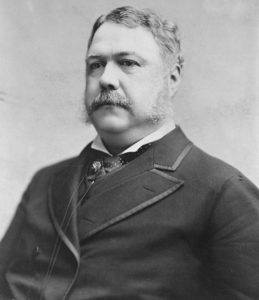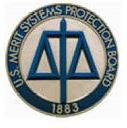Do You know the History of the Merit Systems Protection Board?
Early History (or rather, Pre-History)
In the early years of the history of the United States, getting a government job was essentially an act of patronage. If the people in charge liked you, and if you were loyal, then a job was yours. If they didn’t, or if the party in power changed, you lost your job. And so it went for over one hundred years. This meant that political bosses and machines arose, and corruption became rampant.
Patronage and Corruption
In New York, after the Civil War, rival machines controlled the elections. For the Democrats, it was the notorious Tammany Hall. And for the Republicans, it was Roscoe Conkling’s machine. Conkling helped get Ulysses Grant elected to the Presidency (although there was probably a great deal of interest in Grant anyway, given his war hero status).
In the 1870s President Grant handed over New York patronage to Conkling, who gave a plum Customs House assignment to a crony named Thomas Murphy. Murphy, who had been a war profiteer, was unpopular, and there was pressure for him to resign. As a result, Grant turned to two men to replace him yet both refused and pointed, instead, to future President Chester A. Arthur.
Tragedy Forces a President to Take Action
Arthur (who was later serving as vice president) became president in 1881 after the shooting death of President James Garfield.

The assassin claimed that Garfield would give him a patronage job, hence that was why he had shot Garfield. The assassin, Charles Guiteau, claimed that he had helped Garfield win the election and the president owed him a patronage job. Two years after Arthur assumed the presidency, he signed the Pendleton Civil Service Reform Act. The Act provided for the creation of the Civil Service Commission. This agency succeeded the Grant Civil Service Commission.
The United States Civil Service Commission
The Civil Service Commission had several divisions, including applications, management services, fair employment, and training. One of its biggest issues was making sure to pay employees equally for equal work. A 1920 Congressional report showed that file clerks made anywhere from $720 to $2400 per annum, under 105 separate titles for what should have been an easy to classify job.
The MSPB’s Origin

The Merit Systems Protection Board is one of three agencies which succeeded the Civil Service Commission. The others are the Office of Personnel Management and the Office of Special Counsel. There are also two related agencies, the Equal Employment Opportunity Commission, and the Federal Labor Relations Authority. These agencies were created by the Civil Service Reform Act of 1978. The Watergate scandal was one of the reasons for the passage of the 1978 Act.
After Watergate, the requirement was not only for new agencies to pay their employees equally for equal work. It was also to bring in the best job candidates. The idea was: to hire these candidates on the basis of merit. Furthermore, they would receive promotions for that same reason. The corollary is also true, that federal employees would lose their jobs based on a lack of merit (although they would have opportunities to rectify the situation).
Office of Special Counsel
The Office of Special Counsel is responsible for investigating and prosecuting all allegations of forbidden personnel practices. Their emphasis is on protecting federal government whistleblowers.
Office of Personnel Management
The Office of Personnel Management is responsible for managing human resources functions for the Executive Branch.
EEO
The Office of Equal Employment Opportunity (EEO) is responsible for planning, implementing, and evaluating the MSPB’s affirmative employment initiatives. It also advises Merit Systems Protection Board managers and supervisors on these initiatives. Furthermore, it advises and trains all employees on compliance with civil rights and equal employment opportunity laws.
FLRA
The Federal Labor Relations Authority is responsible for labor relations between the federal government and its employees.
And finally, the MSPB is responsible for neutral adjudications and conducting independent, nonpartisan government-wide studies. The Merit Systems Protection Board’s duties are covered under Title 5, United States Code, Section 1204 (a).

